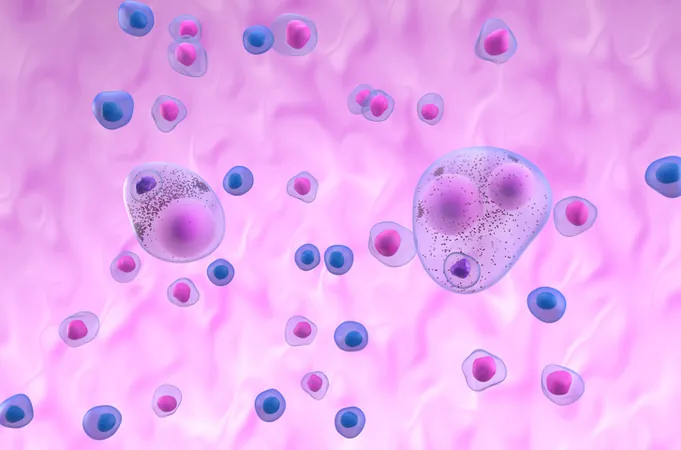
Groundbreaking Study Reveals Iron Supplements Boost Brain Development in HIV-Positive Children!
2024-10-31
Author: Siti
Groundbreaking Study Reveals Iron Supplements Boost Brain Development in HIV-Positive Children!
In a groundbreaking study conducted by a research team from the University of Minnesota Medical School, a new breakthrough has emerged that could significantly enhance brain development in children living with HIV in sub-Saharan Africa. This vital research, recently published in the prestigious journal The Lancet HIV, challenges previous assumptions regarding the use of iron supplements in this vulnerable population.
Historically, healthcare professionals have been hesitant to prescribe iron supplements to children with HIV due to fears that it might exacerbate infection risks. However, the findings from this study demonstrate the opposite: iron supplementation may actually provide crucial support for brain health and development.
Dr. Sarah Cusick, an associate professor at the University of Minnesota Medical School and a key contributor to this research, emphasized the importance of this finding, stating, "With the success and widespread availability of antiretroviral therapy (ART), children with HIV in sub-Saharan Africa are living longer. Optimizing their brain development is now a critical public health imperative."
The study enrolled 200 children diagnosed with both HIV and anemia, all of whom had been on ART for at least six months, from May 2018 to November 2019. In a controlled environment, participants were randomly assigned to receive either iron supplements or a placebo for three months. Results showed that the children who received iron supplements exhibited significantly higher hemoglobin concentrations and superior markers of iron nutrition compared to their placebo counterparts. Remarkably, no increase in infection risk was observed, dispelling earlier concerns.
This research opens avenues for further studies to evaluate the longer-term effects of iron on brain development in these children and to fully understand any potential risks. The implications of these findings could reshape public health strategies for managing the care of children with HIV across sub-Saharan Africa, where more than 1 million children live with the virus.
As we continue to explore ways to optimize health outcomes for children affected by HIV, this study is a clarion call for the medical community to reconsider previous assumptions and to prioritize research that targets holistic approaches to health in vulnerable populations. Stay tuned for updates as we delve deeper into the future of HIV pediatric care!




 Brasil (PT)
Brasil (PT)
 Canada (EN)
Canada (EN)
 Chile (ES)
Chile (ES)
 España (ES)
España (ES)
 France (FR)
France (FR)
 Hong Kong (EN)
Hong Kong (EN)
 Italia (IT)
Italia (IT)
 日本 (JA)
日本 (JA)
 Magyarország (HU)
Magyarország (HU)
 Norge (NO)
Norge (NO)
 Polska (PL)
Polska (PL)
 Schweiz (DE)
Schweiz (DE)
 Singapore (EN)
Singapore (EN)
 Sverige (SV)
Sverige (SV)
 Suomi (FI)
Suomi (FI)
 Türkiye (TR)
Türkiye (TR)